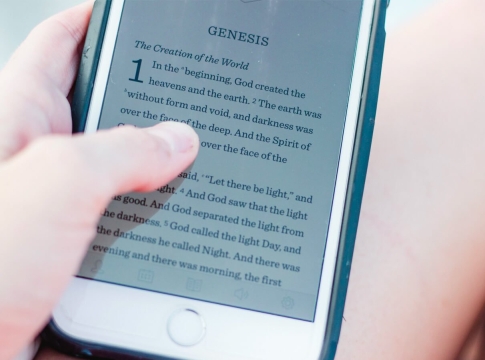
Samuel is found in two of the books of our modern Bibles. Actually, this is merely “part 1” and “part 2” of a much longer, well-reasoned story. In this essay, we will thus treat them as a single book.
Historical background
Samuel’s writings provide historical accounts of the Israelites. The Israelites’ journey out of Egypt and their conquest of Canaan are chronicled in the books of Exodus and Joshua, which are read before the writings of Samuel. God had given them a detailed instruction manual on how to live in accordance with his will during their trek through the desert. But for the most part, the people disregarded the commands of the Lord. Following Joshua’s passing, “the people of Israel did what was evil in the sight of the Lord and served the Baals,” according to the book of Judges. And they turned their backs on the God of their fathers, the Lord, who had delivered them from Egypt (Judges 2:11–12).
Throughout the remainder of the book, the people abandon God, He turns them over to adversaries or other judgments, they repent and God saves them, and then the cycle repeats itself. In light of this, the book of Samuel documents the evolution of Israel from a disorganized confederation of tribes into a one nation ruled by King Saul and then King David.
The prophet Samuel
The book starts with a woman named Hannah begging God for a child. Her prayers are answered and she bears a son, Samuel. This boy becomes a servant of the Lord. At a very young age, he gets to live in the tabernacle, “ministering to the Lord in the presence of Eli the priest” (1 Samuel 2:11). In 1 Samuel 3, we read how God speaks to Samuel and reveals to him what will happen to Eli’s priestly family. This is the start of Samuel’s “career” as a prophet: “And all Israel from Dan to Beersheba knew that Samuel was established as a prophet of the Lord. And the Lord appeared again at Shiloh, for the Lord revealed himself to Samuel at Shiloh by the word of the Lord” (1 Samuel 3:20-21).
When Samuel ages in 1 Samuel 8, the people [ask for a monarch] just like the surrounding countries. They even deny God the right to rule over them (1 Samuel 8:7). Samuel forewarns them, but God commands him to grant the people’s requests. He names a member of the Benjamin tribe to be the first king of Israel.
King Saul
This first king is called Saul. At first, he is humble and obeys God’s will, but as the story unfolds, he turns out to be dishonest and full of pride. The Lord rejects him from being Israel’s king (1 Samuel 15:23). He tells Samuel to secretly anoint a new king, David. This man shows a radical and humble trust in God, which for example is illustrated in 1 Samuel 17, where he kills the giant Goliath. When David starts working as a general in Saul’s army and gradually gains fame and power, King Saul starts chasing him “like one who hunts a partridge in the mountains”, trying to kill him (1 Samuel 26:20). During this period, David writes a lot of Psalms, for example Psalm 18, Psalm 52-53 and Psalm 57. When Saul finally dies, David becomes king — first only over part of the people, but finally over all of Israel.
King David
The book of 2 Samuel starts with Saul’s death and David becoming king. Initially, he is doing really well. He is trusting and obeying God, which is a blessing for the whole nation. David wins many battles and extends his territory. He makes Jerusalem into Israel’s capital city and wants to build a temple for God as well. However, God doesn’t permit him to. David does move the ark of the covenant, the special symbol of God’s presence, to Jerusalem, but the temple will be built by his son. God promises David that his royal family line will remain forever. It will bring forth a king who will set up an eternal kingdom. In later books, this promise is repeated and ultimately fulfilled in Jesus Christ, the Son of David.
Two Samuel 11 tells about a major moral blunder committed by David. The king spots Bathsheba, a stunning woman. She is Uriah’s wife, but David had an affair with her. David marries Bathsheba and gives the order to kill Uriah upon learning that she is pregnant. David has indeed angered the Lord. David expresses regret and is pardoned, but his error has grave repercussions. Over time, several of his sons pass away and his family disintegrates. Although David is still king, his latter years are not quite as spectacular as his early ones.
Some important themes
- Samuel’s mother Hannah sings a song at the start of the book. She sings of how the Lord elevates and puts low. According to 1 Samuel 2:7–2:9, “He will guard the feet of his faithful ones, but the wicked shall be cut off in darkness.” The lives of David, Saul, and Samuel demonstrate this. God punishes David when he behaves like “the wicked,” but He also opposes the arrogant Saul and elevates the meek David.
- Despite being a child of God, David was not flawless, as demonstrated by his error. This story demonstrates that God [will pardon our crimes if we turn from them], but it also demonstrates the serious repercussions that can result from human sin.
- God is still devoted to his people and his Word in spite of Saul and David’s terrible conduct. He has fulfilled his promise to leave an heir forever to David’s kingdom! The ultimate King, Jesus Christ, bestows blessings onto every nation.





